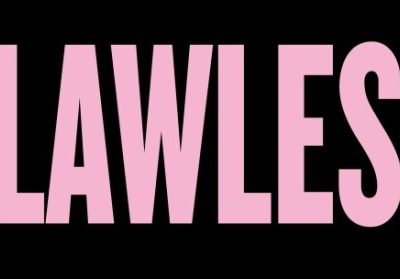It would be nice to rule the world by the time we’re 33. Beyoncé has a net worth of $115 million and came in as Forbes 17th most powerful woman in 2014. How does she do it? As we go through college, there’s a lot we can learn about building a brand like Bey.
1. Create your personal brand statement

Who are you? Literally sit down and write a list of what makes you unique and how you want people to see you. Effective branding will show your audience exactly what you’re passionate about. Don’t ask yourself this question if you’re going through an identity crisis or have just pulled an all-nighter.
2. Personalize

Clearly define what you do. For example, if you’re a graphic designer who’s interested in advertising then establish a style and stick to it. “It’s great to be good at multiple things, just make sure you have an underlying element that reflects in all of your work,” junior graphic design major Kelsey Ohira said. “A successful personal brand is also unique. In order to stand out from others in your field, you need to have a little something special that sets you apart.” Make your resume unique and effective for the audience you want to target. It could also reflect the color scheme and wordmark on your website to complete the package.
3. Network like a boss

Unlike when our parents were in college, we have the opportunity to use the Internet to meet just about anyone. Stalking, following, subscribing—whatever you want to call it, own it. If you want to work at a certain publication, follow everyone else who works there on Twitter and other social media outlets. Keep up with what’s happening and get your name out there. “Don’t hesitate to reach out to people on LinkedIn, for example. Networking beyond the people you know never hurts. You will be surprised when they reach out and want to help,” communications professor Jon Glass said. Just don’t forget, the Internet can never replace in-person interviews and networking.
4. Do some damage control

A 2-minute keg stand is truly impressive among college students. However, if it’s your best attribute on Facebook then you need to reassess your priorities. Ninety-two percent of companies now use social media for recruitment purposes, according to US News. Some people handle this by creating both professional and personal social media accounts. Just make sure your privacy settings are flawless, like Queen B herself. Or else it could cost you that potential internship or job.
5. Make your own website

A personal website is far more impressive than a resume. Start by buying the domain of your name. Yes, first and last–once you’re famous, maybe then you can own your first name like Beyonce.com. “In an hour’s worth of dedicated time you could create a personal site and be up to speed across all of your networks. Schedule a reminder to check your website once a month so that you can add, tweak, and check search engine results when you Google your name. Make sure you look good online and extend your brand by promoting your domain as part of your resume,” Glass said. Add a blog, visual arts portfolio or video feed to your personal website to highlight all those skills you’ve been bragging about on your resume.
6. Online Presence

Anyone can find you online. “What shows up on the first few pages of a Google search return could be a critical first impression of what people see and think about you,” Glass said. He encourages students to Google their name often and use Google Alerts for when you’re mentioned online. Maintaining your online presence means updating your social channels. “Keep tabs on your LinkedIn page and Twitter, make sure they reflect who you are, who you want to be and your aspirations for the future,” Glass said. Facebook doesn’t have to be a black hole where you waste three hours every night. Use social media websites to their full potential.
7. Career Services

Too many students never take advantage of career services. If you’re going to build a brand like Queen B, you must have a team on your side. For how much you pay to go to college you should be visiting them all the time. They’re there to look at your personal website, LinkedIn, resume and cover letters to offer advice and professional insight. They know, from professional experience, what makes a consistent brand and what it looks like. More importantly, they can catch errors that you have overlooked. Take advantage of them.
8. Control your image

Fashion is usually the first impression. You don’t have to wear designer clothes to an interview, but know what’s appropriate for the workplace and brand what you wear just like everything else. If you’re inauthentic then your personal style won’t reflect the brand you’ve created online. Update your professional wardrobe and if you need inspiration check out the Pinterest accounts of university career services departments.
9. Grow your brand

Who you are at 22 isn’t who you will be at 32. Let your brand grow with you but make sure your image changes gradually. Keep building and don’t let your brand lag behind. “As a college student you should give some consideration to where you want to be, not just a reflection of who you are now. For example, I discourage students when using LinkedIn from posting that they are a student,” Glass said. “Think about where you want to be. Look at other professionals in that realm and how they portray and represent themselves. Not that you have to mimic them but these are the people who are doing it. Do some research as to what that looks like.” Packaging yourself through a personal brand will give you a boost when you’re in the job market.



















